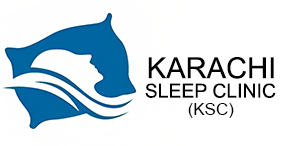Sleep apnea is a common sleep disorder that affects millions of people worldwide. It is characterized by pauses in breathing during sleep, which can lead to a range of negative health consequences. While there are several treatment options available for sleep apnea, researchers are continuously exploring new and innovative ways to manage the condition. Here’s a look at the latest research and advancements in sleep apnea treatment.
Oral appliances: Oral appliances are devices that can be worn in the mouth during sleep to help keep the airway open. These devices work by repositioning the jaw and tongue, which can reduce the severity of sleep apnea symptoms. Recent research has shown that oral appliances can be an effective alternative to continuous positive airway pressure (CPAP) therapy, which is the most common treatment for sleep apnea.
Surgery: Surgery can be an option for people with severe sleep apnea who have not responded to other treatments. The most common surgical procedure for sleep apnea is uvulopalatopharyngoplasty (UPPP), which involves removing excess tissue from the back of the throat to widen the airway. However, recent research has shown that newer surgical techniques, such as hypoglossal nerve stimulation, can be more effective in reducing sleep apnea symptoms.
Positional therapy: Positional therapy involves training people to sleep in positions that can help reduce the severity of sleep apnea symptoms. Recent research has shown that positional therapy can be effective in managing sleep apnea, particularly for people with mild to moderate sleep apnea who predominantly experience symptoms while sleeping on their back.
Inspire therapy: Inspire therapy is a newer treatment option for sleep apnea that involves the implantation of a small device that helps keep the airway open during sleep. The device is implanted under the skin in the chest and works by delivering mild electrical impulses to the nerves that control the tongue and other muscles in the airway. Recent research has shown that Inspire therapy can be an effective alternative to CPAP therapy for people with moderate to severe sleep apnea.
In conclusion, researchers are continuously exploring new and innovative ways to manage sleep apnea. Oral appliances, surgery, positional therapy, and Inspire therapy are all promising treatment options for people with sleep apnea. If you have sleep apnea, talk to your doctor about the latest research and advancements in treatment and which options may be best suited for you.

